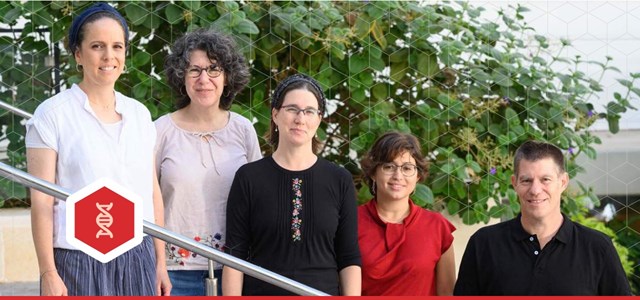
Bacteria have been shown to affect cancer growth, metastasis, and response therapy, but now, according to a recently published study by Weizmann scientists, fungal activity is “a new and emerging hallmark of cancer,” says Prof. Ravid Straussman of the Weizmann’s Molecular Cell Biology Department and co-leader of a recent study by researchers at the Weizmann Institute and UC-San Diego. This discovery will likely lead to better outcomes in human survival of many different cancers.
The study, which characterized both the fungi and the bacteria that are present in human tumors, demonstrated that typical “hubs” of fungi and bacteria can be found in tumors. These may be important for treatment, as they correlate with both tumor immunity and patient survival.
Outlining new implications for the detection, diagnosis, and treatment of cancer, Weizmann scientists discovered multiple correlations between the presence of specific fungi in tumors and conditions related to treatment. For example, breast cancer patients who have Malassezia globosa – a fungus found naturally on the skin – in their tumors had a much lower survival rate than those who did not have the fungus. In addition, specific fungi were found to be more prevalent in the breast tumors of older patients than in those of younger ones, in the lung tumors of smokers than in those of nonsmokers, and in melanoma tumors that did not respond to immunotherapy than in tumors that did respond to therapy.
“These findings should drive us to better explore the potential effects of tumor fungi and to re-examine almost everything we know about cancer through a ‘microbiome lens’,” Straussman said.
The existence of fungi in most human cancers “is both a surprise and to be expected,” says co-author of the study Prof. Rob Knight, professor of Pediatrics, Bioengineering, and Computer Science & Engineering at UC San Diego. “It is surprising because we don’t know how fungi could get into tumors throughout the body. But it is also expected, because it fits the pattern of healthy microbiomes throughout the body, including the gut, mouth, and skin, where bacteria and fungi interact as part of a complex community.”
The new paper also explored the presence of fungal and bacterial DNA in human blood. “The results suggest that measuring microbial DNA in the blood may help in the early detection of cancer, as different microbial DNA signatures can be found in the blood of cancer and noncancer patients,” says Dr. Gregory Sepich-Poore, a former graduate student in Knight’s lab.
As the study “sheds new light on the complex biological environment within tumors,” Prof. Yitzhak Pilpel, a coauthor of the study and principal investigator at the Weizmann Institute’s Molecular Genetics Department, says “future research will reveal how fungi affect cancerous growth.”
“The fact that fungi can be found not only in cancer cells but also in immune cells implies that, in the future, we’ll probably find that fungi have some effect not only on the cancer cells but also on immune cells and their activity,” Prof. Pilpel said.
